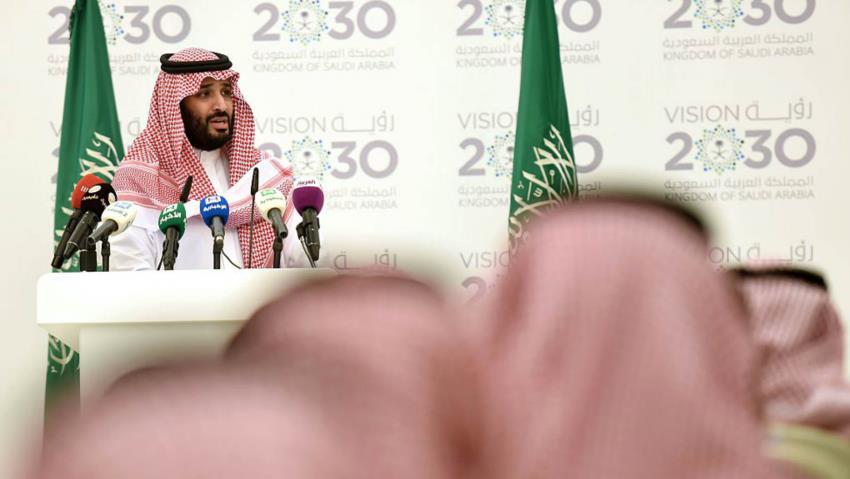As Saudi Arabia struggles to salvage its ailing economy and move away from oil dependency, the coronavirus crisis has rendered Crown Prince Mohammad bin Salman's (MbS) future ambitions even more fragile. And as the world faces the prospect of a global recession, there's good reason to believe Saudi Arabia will not be spared.
As nations the world over moved into lockdown, reigning King Salman on 19 March warned that the kingdom faced a "more difficult" battle ahead amid the coronavirus crisis and oil price war with Russia, both of which put the Saudi kingdom's very stability at risk.
Though Saudi Arabia has presented itself as a leader in the battle against coronavirus, with King Salman hosting the G20 meeting on 26 March to address responding to the pandemic, Riyadh's own emerging troubles and apparent mismanagement of the crisis were brushed over, in what was was largely a PR measure.
Saudi Arabia initially politicised the coronavirus pandemic, for instance cordoning off the Shia-majority Qatif region on 8 March, after pilgrims returned from Iran, and then blamed Iran for not managing the problem. One Saudi journalist even crudely accused Qatar of creating the virus to undermine Saudi Arabia's Vision 2030 and the United Arab Emirates' Dubai Expo 2020.
Furthermore, in a move which migrant advocates deemed inhumane, Saudi Arabia deported thousands of Ethiopian migrants in the first 10 days of April, as its economy contracted, risking further spreading the virus.
Reports suggesting that Saudi Arabia faces a staggering 200,000 recorded cases, and that up to 150 members of the royal family already have Covid-19, mean that the virus could shake the kingdom to its foundations. Such fears have forced Riyadh to act more seriously, imposing 24-hour curfews in major cities on 6 April, and creating a stimulus package of 120 billion Saudi riyals ($32 billion) to revitalise the economy and provide extra assistance to small and medium sized businesses.
This week in Saudi Arabia concerns over food shortages emerged, after promotional deals on food staples, including rice and vegetable oil were banned.
In fact, Riyadh's economic vulnerability became clear after demand for oil plummeted amid the coronavirus crisis and the oil price war with Russia, creating the biggest oil shock since 1973 - which, in contrast to the current crisis - created higher oil prices.
Though both countries agreed to a mutually acceptable deal to cut production last week, oil prices are still arguably too low to revitalise Riyadh's economic growth. Demand has fallen by between 25 and 35 million barrels per day - still much higher than the 9.7 billion barrels per day oil producing nations agreed to cut. Analysts are already warning that continued lower oil prices could further widen Saudi Arabia's deficit.
More critically, Saudi Arabia's price war with Russia revealed an ongoing dependency on oil economic development, while lower revenues mean less ability to invest in its non-oil sectors. With exports sinking, and limited hope for short-term recovery, Saudi Arabia is ultimately likely to struggle as a result.
Unlike other countries, Saudi Arabia has enough financial reserves to withstand this current crisis, though MbS will face an uphill battle to restore his vision. Already pursuing an erratic power-grab with another round of royal arrests in March, MbS has driven Saudi Arabia's increasingly aggressive nationalist stance in parallel with these economic reforms.
Coronavirus will further trigger panic in MbS' mind, likely leading to more irrational measures to protect his grip on power. More so than ever before, Saudi Arabia's future looks increasingly fragile.

No comments:
Post a Comment
Note: Only a member of this blog may post a comment.